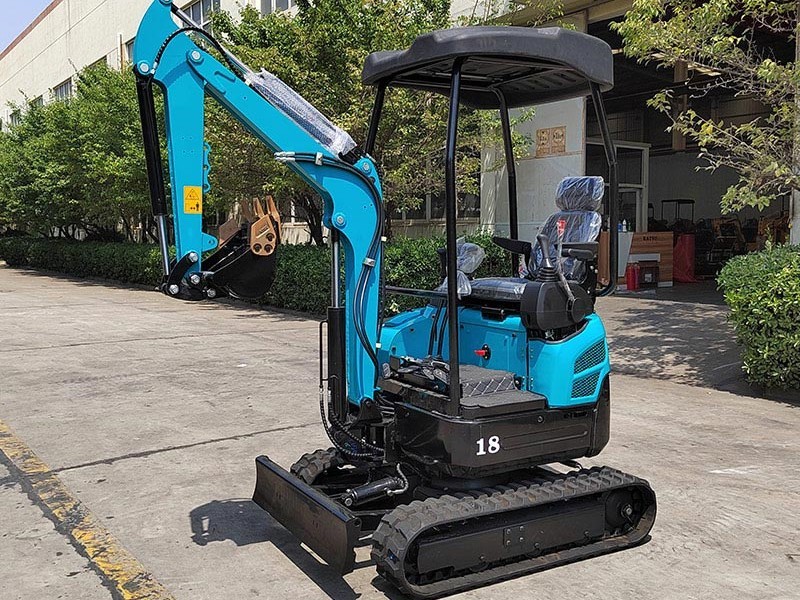Mini excavators are small machines widely used in construction, gardening and municipal engineering. Due to their flexibility and efficiency, more and more construction sites are starting to use mini excavators. However, safety is always an important factor that must be considered when using any heavy machinery. Here are a few key aspects about mini excavator safety.
1. Operator training
First of all, operator training is crucial. Qualified operators should undergo professional training to understand the operating specifications and safety precautions of mini excavators. The training content usually includes basic operation of the equipment, daily inspection, emergency handling and safety protection measures. Only fully trained operators can effectively reduce the risk of accidents.
2. Equipment inspection
Before each use, the operator should conduct a comprehensive inspection of the mini excavator. This includes checking the hydraulic system, brakes, lights, horns and other key components. Ensuring that all safety devices (such as seat belts and guardrails) are working properly can greatly reduce the risk of accidents.
3. Working environment
The working environment of the mini excavator also has an important impact on safety. The operator should ensure that there are no obstacles in the working area and the ground is flat and solid. In addition, avoid operating the equipment in adverse weather conditions (such as strong winds or heavy rain) to reduce the possibility of accidents.
4. Load limit
Mini excavators have limited load capacity, and operators must follow the load limits provided by the manufacturer. Overloading can not only cause damage to the equipment, but can also lead to serious accidents such as rollovers. Therefore, operators should always work within the safe load range.
5. On-site communication
Good communication is essential on the construction site. Effective communication should be maintained between the operator and the ground workers to ensure that everyone understands the operation plan and potential hazards. The use of tools such as gestures and walkie-talkies can help improve communication efficiency and avoid misoperation.
6. Protective equipment
Operators should wear appropriate personal protective equipment (PPE) such as hard hats, safety shoes, gloves and goggles when operating mini excavators. These protective equipment can provide additional protection in the event of an accident and reduce the risk of injury.
7. Regular maintenance
Regular maintenance is an important part of ensuring the safe operation of mini excavators. The maintenance of the equipment should be carried out by professionals, including replacing worn parts, checking the levels of hydraulic oil and lubricating oil, etc. Good maintenance can extend the service life of the equipment and reduce the probability of failure.
8. Emergency Plan
Finally, the construction site should have an emergency plan in place to deal with possible accidents or failures. This includes developing evacuation routes, first aid measures, and accident reporting procedures. All workers should be familiar with these plans so that they can respond quickly in an emergency.
Conclusion
In summary, mini excavators are relatively safe with proper training, maintenance, and safety measures. However, operators and construction teams must always be vigilant and follow safety regulations to ensure a safe working environment. Through enhanced training, regular inspections, and good communication, the risk of accidents can be effectively reduced and the safe use of mini excavators can be ensured.
